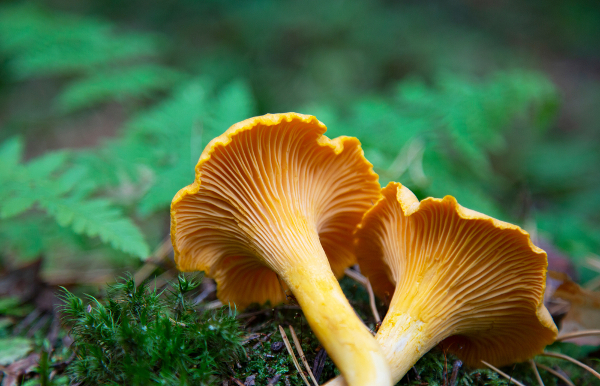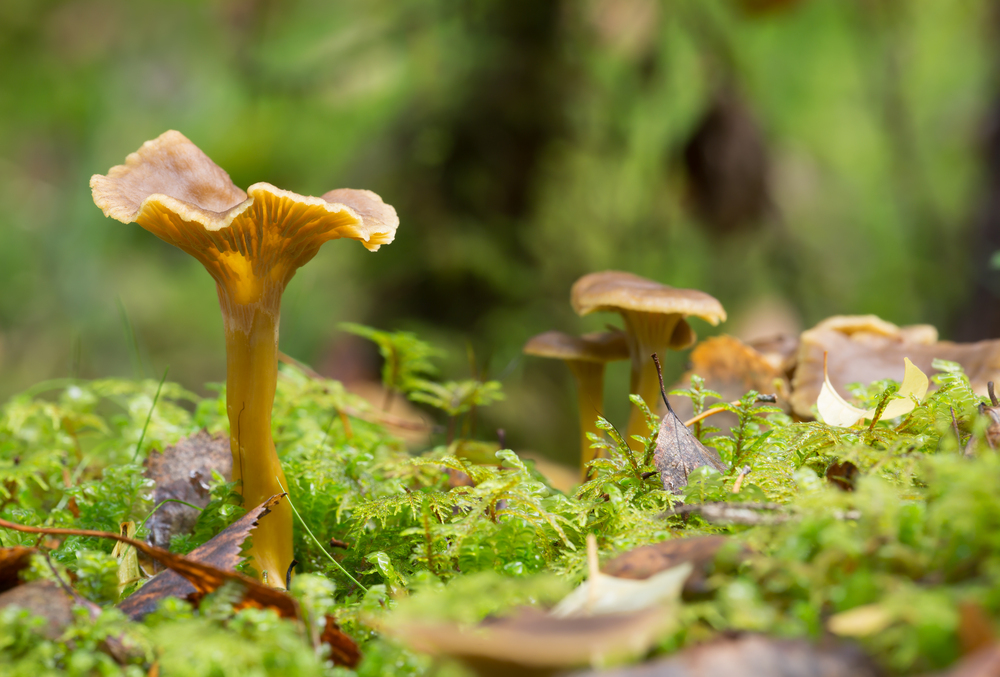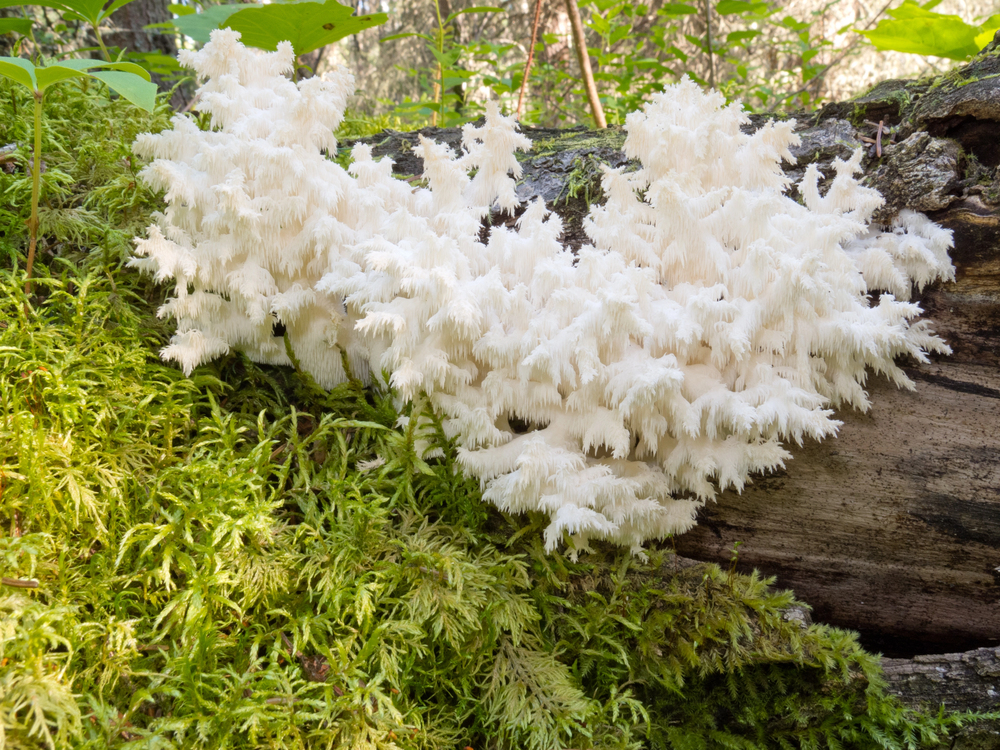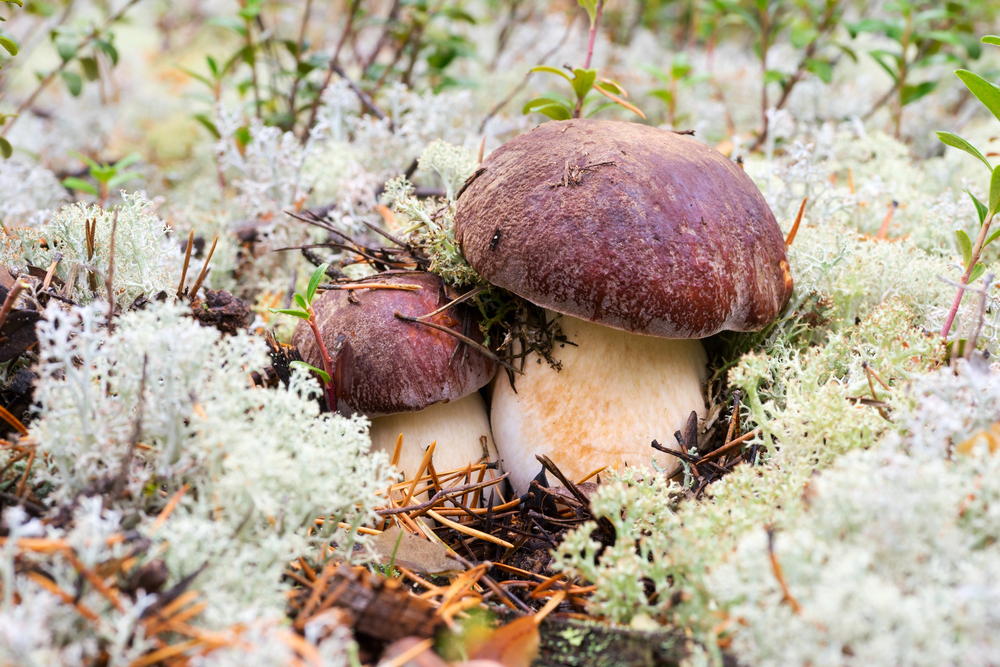Wild mushrooms offer a diverse array of health benefits that go beyond their culinary uses. These fungi are packed with essential nutrients and play a vital role in boosting immune function, reducing inflammation, and potentially supporting mental health. Their notable antioxidant properties and positive impact on heart health make wild mushrooms worthy of attention. The key question is: which specific varieties provide the most significant health benefits, and how can they be seamlessly integrated into a balanced diet?
Nutrient Density of Wild Mushrooms
Wild mushrooms are nutrient-dense, packed with vitamins, minerals, and antioxidants that support health and well-being. They are rich in vitamin D, B vitamins, selenium, and potassium, making them a valuable addition to a balanced diet and offering diverse culinary experiences.
To enhance their flavors and health benefits, consider various cooking methods like sautéing, roasting, or grilling. These techniques can elevate their earthy taste while preserving their nutritional value. However, ensure that wild mushrooms are sourced safely, as some species can be toxic.
Foraging tips are essential for those interested in gathering mushrooms in the wild. Familiarize yourself with local species and consult reliable resources or experts to avoid errors. Utilize field guides and connect with local foraging communities to expand your knowledge and skills. By practicing safe foraging and creative cooking, individuals can fully enjoy the vibrant benefits of wild mushrooms while embracing self-sufficiency.
Immune System Support
Wild mushrooms are known for their rich nutrient profile that supports the immune system. Their antioxidant properties help combat oxidative stress, while their anti-inflammatory effects enhance immune function. Together, these characteristics make wild mushrooms a valuable addition to a health-conscious diet focused on boosting immunity.
Rich Nutrient Profile
Mushrooms offer a rich nutrient profile that supports immune system health, packed with essential vitamins, minerals, and antioxidants. Wild varieties like chanterelles, morels, and porcini are especially noted for their nutrient density. They are excellent sources of B vitamins, including riboflavin and niacin, which are important for energy production and cellular health. Moreover, wild mushrooms are abundant in minerals such as selenium and copper, important for optimal immune function.
Employing various cooking techniques enhances the bioavailability of these nutrients, allowing for better absorption by the body. Sautéing, roasting, or steaming not only preserves their nutritional value but also enhances flavor, making them an exciting addition to meals.
Incorporating wild mushrooms into your diet fosters a balanced approach to nutrition, delivering important components to strengthen the immune system. By embracing these natural delights, you equip your body to combat illness while enjoying the culinary versatility that different cooking methods provide. Wild mushrooms thus represent a delicious and nutritious choice for supporting immune health.
Antioxidant Properties
The antioxidant properties of wild mushrooms significantly enhance the immune system, complementing their rich nutrient profile. These natural compounds scavenge free radicals, reducing oxidative stress and supporting overall health. Various mushroom types offer different levels of antioxidants, making them versatile additions to a balanced diet. By using diverse cooking techniques, individuals can maximize these health benefits while enjoying the unique flavors of wild mushrooms.
Here are some key antioxidant-rich mushroom species that can be foraged in Europe and North America:
- Chanterelles: Known for their delicate flavor and vibrant color, chanterelles are not only a culinary delight but also rich in antioxidants, providing immune support.
- Porcini: This beloved mushroom is prized for its earthy taste and is also a source of antioxidants that can enhance overall wellness.
- Morel: With their distinctive honeycomb appearance, morels are a seasonal favorite among foragers and are packed with nutrients that support the immune system.
- Lion’s Mane: Recognized for its unique appearance, Lion’s Mane mushrooms contain potent compounds that promote cognitive health and possess antioxidant properties that combat oxidative stress.

Anti-Inflammatory Effects
Regular consumption of certain mushroom varieties can significantly reduce inflammation and support the immune system. Varieties like reishi and shiitake contain bioactive compounds that modulate immune responses and alleviate chronic pain, making them a valuable addition to a health-conscious diet.
The anti-inflammatory effects of wild mushrooms are enhanced when paired with turmeric, known for its potent curcumin content. This combination effectively targets inflammation and promotes overall well-being. Inflammation can contribute to various health issues, including autoimmune disorders and chronic pain conditions. By incorporating these mushrooms into our meals, we can better equip our bodies to fight inflammation.
Additionally, the polysaccharides in mushrooms support the production of anti-inflammatory cytokines, fostering a balanced immune response. This is especially beneficial for those seeking natural alternatives to pharmaceutical anti-inflammatories, allowing for a holistic approach to health. Embracing wild mushrooms as a dietary staple not only nurtures immune resilience but also helps pave the way for a lifestyle less burdened by inflammation-related ailments.

Antioxidant Properties
Wild mushrooms are a flavorful addition to meals and offer significant nutritional benefits, particularly in combating oxidative stress. Their rich antioxidant content helps protect the body from free radicals, promoting cellular health.
Here are four key antioxidant benefits of wild mushrooms:
- Free Radical Scavenging: The antioxidants in wild mushrooms effectively neutralize harmful free radicals, minimizing cellular damage.
- Improved Immune Function: By reducing oxidative stress, these mushrooms enhance the immune system, supporting a strong response to infections.
- Anti-Aging Properties: The antioxidants present may slow the aging process by shielding skin cells from oxidative damage, contributing to a more youthful appearance.
- Reduced Inflammation: Antioxidants can alleviate chronic inflammation, which is often associated with various health issues.
Incorporating wild mushrooms into your diet not only enhances culinary enjoyment but also strengthens your body’s defenses against oxidative stress, promoting overall well-being.
Heart Health Benefits
Wild mushrooms provide notable heart health benefits, especially in regulating cholesterol levels and reducing inflammation. Adding these nutrient-rich fungi to your diet can support cardiovascular health and lower the risk of heart disease. Recognizing these properties can enhance appreciation for wild mushrooms as a beneficial dietary element for heart wellness.
Cholesterol Level Regulation
Mushrooms can play a beneficial role in regulating cholesterol levels and promoting heart health. Their unique composition can lead to significant cholesterol reduction and improve the lipid profile. Incorporating wild mushrooms into your diet can offer several heart health benefits, including:
- Increased Fiber Intake: Wild mushrooms are rich in dietary fiber, which can help lower bad cholesterol (LDL) levels.
- Plant Sterols: These compounds found in mushrooms can block cholesterol absorption in the intestines, further aiding in cholesterol regulation.
- Antioxidant Properties: Wild mushrooms contain antioxidants that combat oxidative stress, supporting vascular health and improving circulation.
- Low-Calorie Option: As a low-calorie food, mushrooms serve as a great substitute for higher-calorie ingredients, helping to maintain a healthy weight, which is important for heart health.
Weight Management Aid
Incorporating mushrooms into a balanced diet can be an effective strategy for weight management due to their low calorie content and high fiber levels. This combination aids in portion control and contributes to appetite regulation, making them an excellent choice for those looking to maintain or achieve a healthy weight.
Here are four ways wild mushrooms can support weight management:
- Low Caloric Density: With minimal calories per serving, mushrooms allow for generous portions without guilt, satisfying hunger without overindulging.
- High Fiber Content: The fiber in mushrooms promotes satiety, helping to curb excessive snacking and reduce overall caloric intake.
- Natural Flavor Booster: Their umami-rich flavor enhances dishes, allowing you to enjoy smaller portions of higher-calorie ingredients without sacrificing taste.
- Versatile Ingredient: Wild mushrooms can be easily added to various meals, increasing bulk and nutrition, which helps in feeling full longer.
Mental Health and Mood Boost
Numerous studies suggest that wild mushrooms may significantly enhance mental health and elevate mood due to their unique nutrient profiles and bioactive compounds. By incorporating wild mushrooms into a mindful eating practice, individuals can experience a range of benefits that contribute to overall mental well-being and stress reduction.
- Rich in B Vitamins: Wild mushrooms are abundant in B vitamins, essential for energy production and the synthesis of neurotransmitters that regulate mood.
- Antioxidant Properties: These fungi contain antioxidants that help combat oxidative stress, a contributor to anxiety and depression.
- Adaptogenic Benefits: Certain wild mushrooms, such as reishi and lion’s mane, are known for their adaptogenic properties, supporting the body’s ability to adapt to stressors and promote mental resilience.
- Gut-Brain Connection: The prebiotic fibers found in wild mushrooms may encourage a healthy gut microbiome, which is increasingly recognized for its influence on mental health.
Incorporating wild mushrooms into daily meals not only enhances flavor but also serves as a delicious way to support mental health and overall well-being.
The Health Benefits of Winter Mushrooms
Winter mushrooms, such as winter chanterelle, meadow waxcap or oyster mushroom, are not only a delightful addition to seasonal dishes but also offer significant health benefits during the colder months. These fungi are packed with essential nutrients that support immune function and combat the winter blues, making them a valuable ally in maintaining overall health. Eating mushrooms in winter can enhance your diet with their rich supply of vitamins, minerals, and antioxidants, helping to ward off seasonal illnesses and promote well-being. Incorporating these hearty varieties into warming soups, stews, and casseroles creates comforting meals that nourish both body and soul during the chilly season.

Culinary Versatility and Enjoyment
Embracing the culinary versatility of wild mushrooms opens up a world of flavors and textures, making them an exciting addition to various dishes. These natural gems provide an excellent opportunity for flavor exploration, allowing chefs and home cooks to experiment with types that range from earthy chanterelles to robust porcini, each enhancing everything from risottos to stir-fries.
Employing different cooking techniques can further elevate the experience of wild mushrooms. Sautéing or grilling brings out their rich umami notes, while roasting intensifies their sweetness and depth. Adding them to soups or sauces can introduce complexity, transforming ordinary meals into gourmet experiences.
Moreover, wild mushrooms pair well with a range of ingredients, from fresh herbs to hearty grains, making them adaptable for diverse culinary styles, whether rustic or modern. As enthusiasts continue to embrace these fungi, the possibilities for innovation are limitless. Ultimately, incorporating wild mushrooms enriches a dish and celebrates nature’s bounty, inviting creativity in the kitchen to explore and savor.



